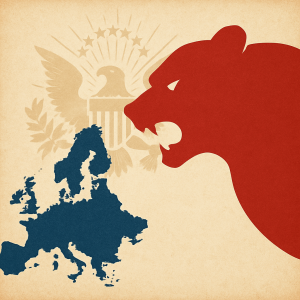It is a slow poison, a little tune in our ears that would like to convince us that, in the end, no, the aspiration to freedom might not be universal. Many peoples, we hear more and more often, the majority of them no doubt, would prefer servitude to democracy, and the triumphant return of the Taliban would be proof of this.
Of course, nobody is saying, not yet, that it would be a question of race or culture, that it would be by nature that Russians or Africans, Muslims, Chinese or Afghans, would be satisfied with despotism, …but in the end, let’s not fake modesty, shall we: there is a link between the taste for freedom and civilisation, meaning the Western civilisation.
But beware of the two dangers lurking here.
The first would be to fall into the deepest ignorance, for if there were an ounce of truth in such a false certainty, how can one understand why so many tanks were needed to crush Tiananmen Square and its demands for free elections and a multi-party system? How can one explain that democracy, not Islamism, raised the Arab world in 2011; that Iran has never, for a century, since its constitutionalist revolution of 1905, stopped fighting its despots; that the whole of Africa rejected colonial domination; that the Russians so loved the freedom they saw during perestroika; that the Burmese are not satisfied with their generals, or that Taiwan is such an exemplary democracy?
On the contrary, world History tells us that the peoples of the five continents want to live free for the plain and simple reason that the dream of every slave is to break his chains. This is absolutely obvious, and if we have come to forget it today, it is first of all because the United States and a large part of Europeans had come to confuse the universality of the aspiration to freedom with the possibility of exporting democracy by military aircraft.
It is hard to imagine today, but after the fall of the Wall, the Americans really thought that the disappearance of dictatorships would guarantee eternal peace since “democracies do not make war on each other”. This is what motivated them, but naturally, they had to face the fact that a foreign army is quickly held responsible for everything that goes wrong in the country it occupies and immediately summoned to take sides in conflicts whose ins and outs it does not control.
This was just as true in Iraq as in Afghanistan. The duty to protect should not have been theorised as the right to interfere. Interference should not become a protectorate. Above all, it should not have wanted to wage two wars side by side, and the second reason for the failure of the United States in these two countries is that it made such unimaginable mistakes like dismantling the entire Iraqi state apparatus or diverting to Baghdad the American men and resources needed in Kabul.
This picture is so bleak for the world’s democracies that today all these people prefer not to focus too much on the despair of Afghans faced with the return of the Taliban, and what is more, they allow the spreading of the argument that the Afghans were not ready for freedom.
Such cynicism is unbearable and odious, but not only that.
It is also suicidal because if the Western democracies were to renounce not only the duty to protect the universality of democratic values but also the defence of them, they would prove Mr Putin, Mr Xi or Mr Erdogan right and strengthen all the dictatorships of the world.
Let the despots massacre without fear, let us admit the old and ignoble fable of the “different conceptions of democracy”, and we democrats will lose the greatest of our strengths: the exemplarity, the attractiveness, the power of the freedoms that our fights have conquered and extended.
Abandon our values and democracies will inevitably fade away because all that would be left is a firepower that the dictators would soon equal.



